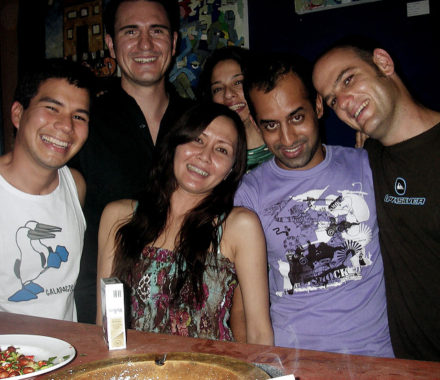Kate Santich, writing in The Orlando Sentinel, surveys current research on what makes people happy — and discusses the so-called “Latino Bonus”:
One of the most intriguing finds to come out of the research so far is that Latin Americans consistently rank happier in life-satisfaction surveys than would otherwise be expected, given that many in the region live in poverty. In an in-depth study of 120,000 people in 82 nations, the World Values Survey found what one researcher dubbed “the Latino bonus.”
“I didn’t expect it,” says Ronald Inglehart, the survey’s director, based at the University of Michigan. “But the evidence is very consistent. And it is not true of all Hispanic countries, because Spain and Portugal are not high on the (life-satisfaction) scale.”
There are probably several factors at work, Inglehart proposes, the first being strong friendship and family ties, a universal source of satisfaction. Another is religious faith, which, interestingly, seems to boost happiness only in Latin America and the United States. In Europe, which is also predominantly Christian, it does not have the same impact.
Inglehart expects further studies of the Latino bonus, but those who have experienced it find it a powerful force.
Sister Ann Kendrick sees it daily in her community. A Roman Catholic nun, she has spent about 35 years helping the poor – mostly immigrants from Latin America – through the Office for Farmworker Ministry in Apopka.
“I’ll put five Hispanic women in my van to go to Orlando, and they can make a party along the way,” she said. “They get to laughing and telling jokes and carrying on. And there might even be some heavy discussion about something tough – like trouble in their marriage or one of their kids being in jail – but there’s a level of energy to their conversation. They generate a sense of connection that just feels good.”
(Emphasis mine.)
(Via Happiness and Public Policy.)
![Ecuador's Mt. Chimborazo [not my image]](http://farm1.static.flickr.com/205/453918797_181847e457_m.jpg)




